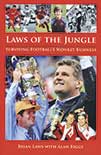 Surviving football’s money business
Surviving football’s money business
by Brian Laws with Alan Biggs
Vertical Editions, £16.99
Reviewed by Graham Stevenson
From WSC 316 June 2013
For a manager who has spent over a decade employed by Scunthorpe United in three spells, it’s disappointing to find only 19 pages in Brian Laws’s autobiography about his time at Glanford Park. He’s led the club to a couple of promotions and a couple of relegations, so it’s not as if there is a dearth of interesting history between them, despite the balance sheet currently reading roughly “nil”.
Scunthorpe are now broke, broken and back in the basement division for the first time in several years – which is exactly where they were when Laws first arrived in 1997. For the small steel-town club he was a relatively big appointment and made an immediate impression. Rumours spread quickly of dressing-room dust-ups and car-park dusting-downs, but “Ol’ Big Hair” and his journalist co-writer don’t take many opportunities to fill in much colour between the lines here.
The Machiavellian boardroom-level manoeuvres during a bizarre three weeks in 2004, for instance, are dealt with in just over a paragraph. This involved Laws being fired by a new chairman, before the previous one stepped in to take back control of the club and reinstated him. “The whole thing got quite nasty,” Brian says. But nasty how? Were horses’ heads involved?
It’s much the same elsewhere throughout this (terribly titled) book. Laws’s time at Grimsby Town is over quite quickly and the aftermath of an injury caused by his launching a plate of chicken wings into Italian midfielder Ivano Bonetti’s face reads like only two-thirds of a story. The lessons learned seem to have been to do with Laws’s handling of the media rather than the handling of his players. Later managerial roles at Sheffield Wednesday and Burnley are similarly done-and-dusted in mere pages and key incidents at all of his clubs feel as if they are dealt with like clearances to be booted into row Z. Much more care is taken in detailing why Laws got the nickname “Ernie” during his playing days. It’s as simple as you imagine – team-mates’ reference to comedian Ernie Wise being short and wearing a wig.
Laws’s years on the pitch dominate – obviously none more so than successful ones at Nottingham Forest (during which he drank Mick Hucknall’s backstage bar dry and wet himself walking out at Wembley for a Cup final – events unrelated). A series of anecdotes about Brian Clough’s eccentricities add more to the mythos but it’s actually Laws himself who surprises with some poignant recollections of the 1989 Hillsborough disaster, such as his continuing embarrassment at not realising the seriousness of events and hurling verbal abuse at the first few Liverpool fans out onto the pitch.
It’s clear Clough had something of a soft spot for Laws and it’s easy enough to figure out why. Laws comes across as reasonably principled and workmanlike – qualities he showed as a player. He also seems prone to let his feelings boil over from time to time, an attribute he clearly takes into the dressing room as a manager.
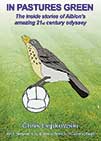 The inside stories of Albion’s amazing 21st century odyssey
The inside stories of Albion’s amazing 21st century odyssey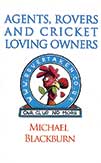 by Michael Blackburn
by Michael Blackburn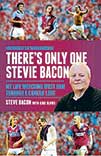 My life watching
West Ham through
a camera lens
My life watching
West Ham through
a camera lens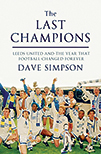 Leeds United and the year that football changed forever
Leeds United and the year that football changed forever